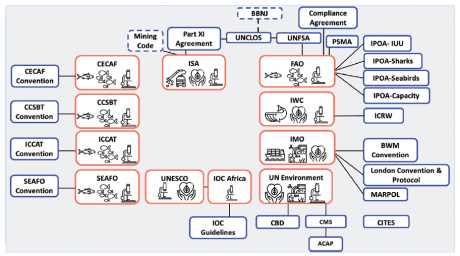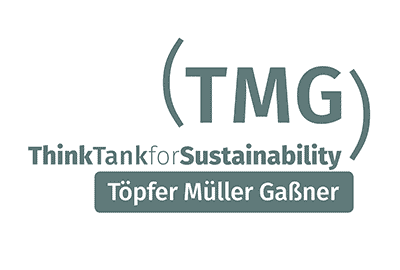The STRONG High Seas project released a report titled ‘Strengthening Regional Ocean Governance for the High Seas: Opportunities and Challenges to Improve the Legal and Institutional Framework of the Southeast Atlantic and Southeast Pacific‘.
This report provides a review of the relevant governance frameworks currently in place for the management of high seas biodiversity in the Southeast Atlantic and Southeast Pacific. The report uses the issues under discussion in the ongoing negotiations for a new legally binding BBNJ agreement under the United Nations, as well as selected Sustainable Development Goal (SDG) 14 targets, as a lens through which to assess progress towards conservation and sustainable use.


The report finds that considerable efforts have been made to advance conservation and sustainable use of BBNJ but legal and implementation gaps remain that hamper efficient and effective management of ecosystems and resources in ABNJ. The report identifies possible options to strengthen the role of regional ocean governance for the high seas in the two regions, including amongst other:
- Advancing cross-sectoral cooperation and coordination between organisations to ensure the implementation of the ecosystem-based approach to manage marine resources and ensure conservation and sustainable use of BBNJ. Various options such as joint programmes, Memoranda of Understanding, and participation in events exist and could be a first step in building cooperation;
- Coastal States in the Southeast Atlantic and Southeast Pacific could choose to implement a common approach or policy for the region on conservation priorities by championing flag State responsibility to impose regulations regarding areas or activities that are not currently covered by a competent management authority; impose stricter standards than required by a competent management authority; and provide regulation where the relevant RFMO or sectoral management body has not adopted measures;
- Challenges to cross-sectoral cooperation can be eased if more States in the regions become parties to the key international and regional agreements, including a future BBNJ agreement for BBNJ. Indeed, such participation may be seen as a priority, as this would provide a shared basis for common action;
- Coastal States could form coalitions to promote mutual interest in specific BBNJ-related issues within existing processes and in the negotiations for a new treaty;
- States could promote conservation and sustainable use of BBNJ by voicing their views and proposing management actions at global and regional fora. States could, for example, make efforts to advance ecosystem-based management within RFMOs by advocating that they put a greater emphasis on assessment of non-target species and management of bycatch;
- The expansion of efforts to coordinate on BBNJ issues by empowering regional seas programmes to consider ABNJ could support a coordinated, regional approach to conservation and sustainable management;
- A robust scientific basis and developed capacity for taking action could also be supported to ensure the establishment of conservation and management measures and ensure the complementarity of sectoral measures.
Stated could also consider that the negotiation of a new BBNJ agreement is an opportunity to bring coherence to a fragmented governance regime, provide additional support for improved cross-sectoral cooperation and allow for the establishment or strengthening of regional integration mechanisms. The negotiation of a new agreement, therefore offers a mode by which to support and achieve many of the above mentioned options for strengthening regional ocean governance.
Read the report here:



